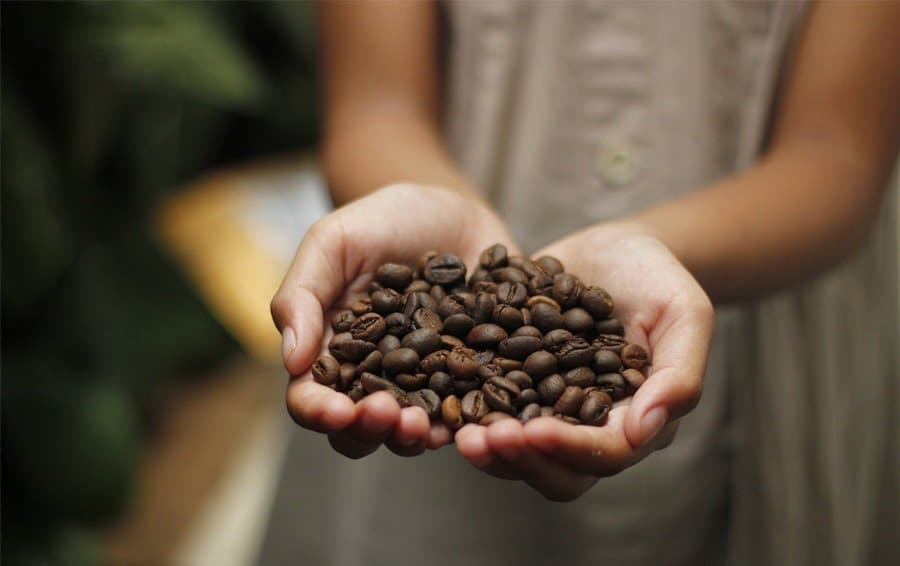As we enter a new year and another lockdown, we’re forced back to online shopping as non-essential retailers close their doors once again. While we might be tempted to order from the giant corporations who can guarantee delivery the next day, we must stick to our guns and shop ethically.
While sites like Amazon raked in $96.15bn in their third quarter of 2020, smaller businesses are left struggling in the pandemic. But it is important to stop and consider where your money is going when you shop online. For example, Amazon was faced with backlash over unsafe conditions in a strive for efficiency. Plus, in 2018, the company released 44.4 million metric tons of carbon dioxide equivalents into our atmosphere. This is roughly the same as the annual emissions of Norway.
It’s never been more important to put our money where our mouth is and back ethical companies with ethical practices. Here, Traidcraft discuss how you can incorporate fair trade into your shopping habits. We will also discuss the potential positive impact this can have on fair trade workers. COVID-19 has caused a difficult time for all of us, but farmers in developing countries are particularly vulnerable and need as much support as they can get.
Guilt-free chocolate that supports farmers
Chocolate is one of the UK’s favourite confectionaries. We love it so much that at the end of 2019, the UK was ranked fourth in the whole world for eating the most of it. The average Brit will consume around 11kg of chocolate each year, which equates to around 660,990 tonnes. Fortunately for us, there are more than enough fair trade chocolate options to give to our nearest and dearest!
Whether you’re looking for tasting sets or chocolate biscuits, there is more than enough variety to satisfy every taste bud.
Buying fair trade chocolate helps benefit cocoa farmers. It can be a difficult life for these workers, and the price of cocoa beans has fallen dramatically even though demand is still high. Disease and age cause damage to cocoa trees, and fewer people are becoming cocoa farmers because of the difficulty these workers face. Fair trade chocolate helps create sustainable incomes for farmers and their families, guaranteeing minimum prices for these farmers.
The all-important cup of coffee
Now when you think ‘quintessentially British’, you’ll probably think of tea. However, we’re drinking more coffee now than ever, so much so that two billion cups are drunk in Britain every single day. So, if you’re looking for premium, fair trade coffee, look no further! Choose coffee from Burundi, Maya, Honduras, Kilimanjaro, Machu Pichu, Ethiopia, and Peru, among many others!
Farmers aren’t immune to the devastating effects of COVID-19, with farmers living on thin margins even in normal times. Production levels have dropped due to social distancing rules in factories combined with falling prices. Therefore, it is more important than ever to support these small-scale farmers. Many organisations will be seeking to cut their costs considering the current situation, making farmers particularly vulnerable.
Clothing
Socks, leggings, nightwear, t-shirts. You can get clothing made from organic fair trade cotton, which provides traceability of where the material was sourced from in the supply chain. Many fair trade cotton farmers are located in India; however, unpredictable weather conditions endanger the livelihoods of small-scale farmers. Fair trade supports these farmers to adapt to changing climates so they can continue earning and living. Fair trade also helps to address unsafe and unfair working conditions while helping farmers to work sustainably.
Fair and beautiful jewellery
If you’re looking to fight the lockdown blues and want to treat yourself, you’ll be pleased to learn that fair trade jewellery is available. Choose from bespoke designed gold rings, chains, necklaces, and bracelets.
Fairtrade Certified Gold supports small-scale miners that receive fair pay for their hard labour and protects them from being exploited for an expensive commodity. The programme also protects the environment and makes life better for communities.
If you can, try to find fair trade alternatives for your usual shopping habits, knowing your purchases will benefit others.






